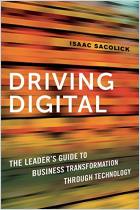For most people, digital screens provide the constant in their lives, yet many companies have yet to fully embrace digital transformation, say Rick DeLisi and Dan Michaeli. Consumers have increasingly negative perspectives of customer service, because many companies fail to create truly seamless experiences. DeLisi and Michaeli call for a mind-set shift – one in which companies embrace a digital-first culture, empower customers to solve their own problems and increase customer digital self-sufficiency. Companies that fail to adapt will lose their competitive advantage, as customers expect brands to evolve with them.
Humans live in a digital world, but many brands fail to embrace digital transformation.
Digital transformation means committing to an ongoing process of integrating digital technologies into all facets of your company’s culture and business. Digital marketing comprises nearly every form of marketing today, including offline tactics, such as billboards and print ads that prompt customers to engage with your digital elements. Most commercial retail enterprises leverage the power of e-commerce, and most companies vest in entirely digital back-office analytics and functionality. People today live increasingly digital lives, with current estimates suggesting that each person on Earth will spend a total of 40 years – or even more – engaged in screen time.
Yet many companies fail to prioritize the digital transformation of their customer service. Often they’ll partially commit, using features such as chatbots, but force customers who get stuck in the middle of their digital journey to start their complaint process or query all over again when an unresolved issue requires voice communication. Companies must connect and integrate...



















Comment on this summary or Démarrer une discussion